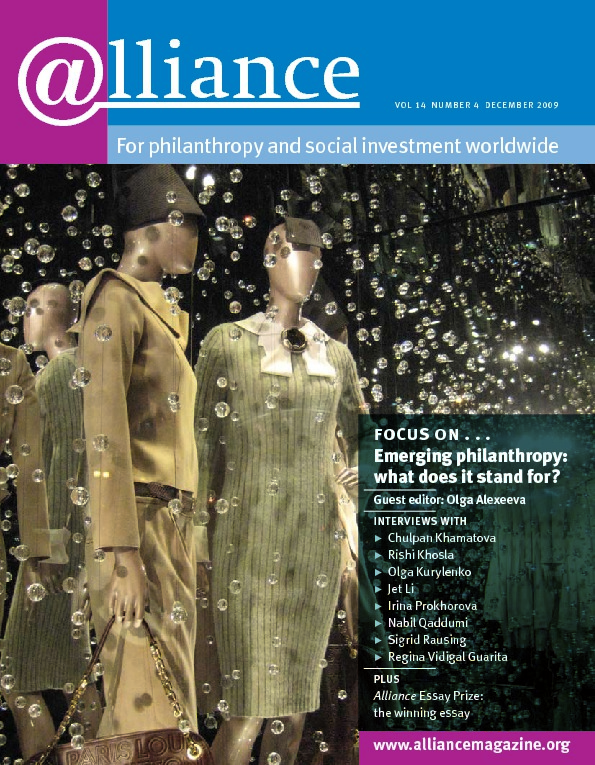If you are looking for a comprehensive book on the subject of NGOs, go no further. This book, it is true, covers ground that others have covered, usually in much more dense and arcane language, but it is without doubt a volume to have for reference purposes and which covers all aspects of this much-disputed field. It has very clear and to-the-point chapter headings and section headings, and provides bullets at the start of each chapter to make it clear what is covered there. It also has very pertinent boxes and references, including references to important texts that seem to have been forgotten, like, for instance, those of Korten and the Commonwealth Foundation. Do you need anything else? Does it have any lacunae?
Personally I am unhappy with describing something as positive as NGOs with a negative – what they are not, as opposed to what they are. They are a great deal more than non-government organizations, as Bill Drayton of Ashoka has perhaps most volubly pointed out. Lewis and Kanji explain how difficult NGOs are to pin down analytically, and have a chapter titled ‘NGOs and Civil Society’ in case anyone doubts the difference between the two, but we are still left with another book that reinforces the use of the negative rather than the positive. The authors provide many alternative terms and very correctly point out that ‘This is not just a semantic problem, however: the way such organisations are ‘labelled’ may have significant implications in terms of who can participate in policy processes and discussion and who can receive funding’. Their list of NGO acronyms (after Najam) includes ones I have not seen before, for example RONGOs – Royal NGOs!
There is another place where I feel more information could have been supplied. This is in Chapter 8, ‘NGOs and the Aid system’. Most of the chapter deals with official aid, and while there is a smaller section called ‘NGOs outside the aid system’, it does not deal sufficiently with the different ways that NGOs can engage with such financing, each element of which has considerable influence on how NGOs are regarded in their own country. NGOs can seek funding from the public, from their own governments and from the corporate sector, and they can try to earn their own money. There is an argument, originating at the ISS (International Institute of Social Studies) in The Hague, for a new typology for NGOs, called Civic Driven Change. This suggests that official aid is the problem that NGOs need to overcome to make them more people-driven and less contractors for foreign donors. It is an interesting and complex topic that is not dealt with sufficiently in this book, which, for the most part, assumes that NGOs are funded by international donors.
Those points having been made, however, this book, as I mentioned above, is a comprehensive and satisfying book that lives up to the promise of the publisher: ‘Despite the growing importance of the topic, no single, short, up-to-date book exists that sets out the main issues in the form of a clearly written, academically informed text: until now!’
Richard Holloway is Civil Society Programme Director, Aga Khan Development Network. Email richard.holloway@akdn.org
Non-Governmental Organisations and Development
David Lewis and Nazneen Kanji Routledge £19.99
ISBN 97890415454292
To order
http://www.routledge.com






Comments (0)